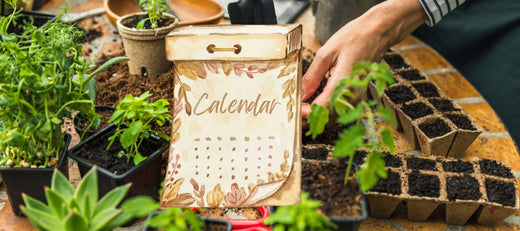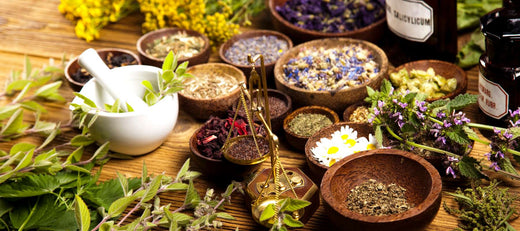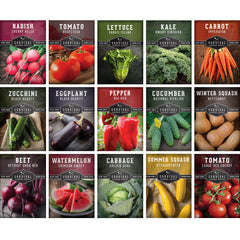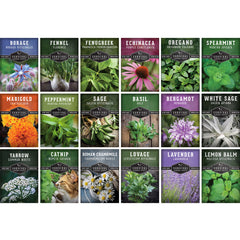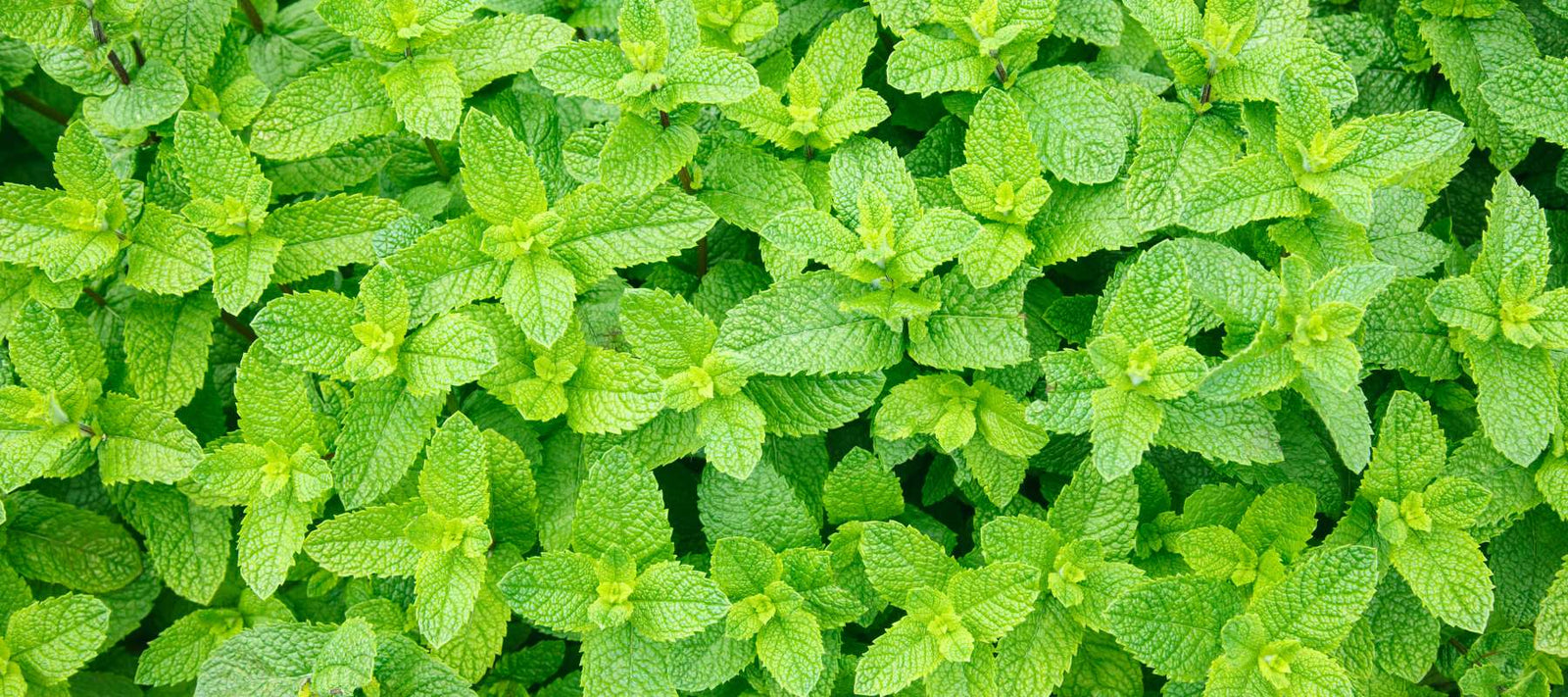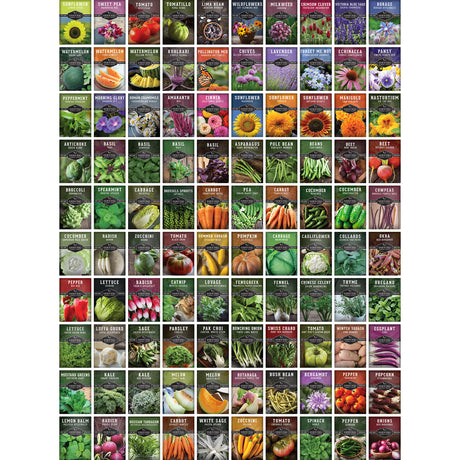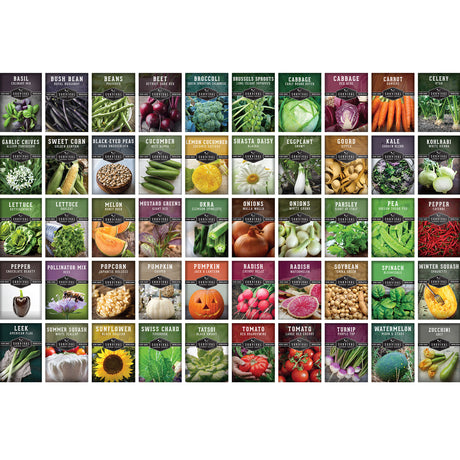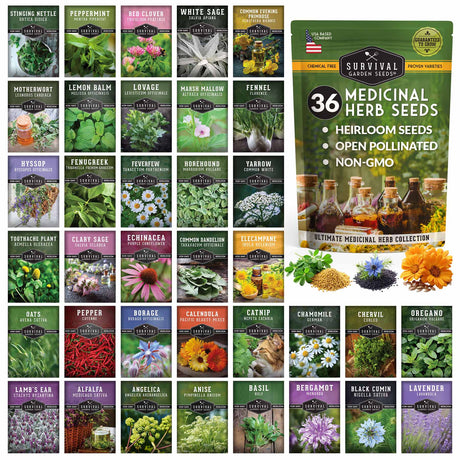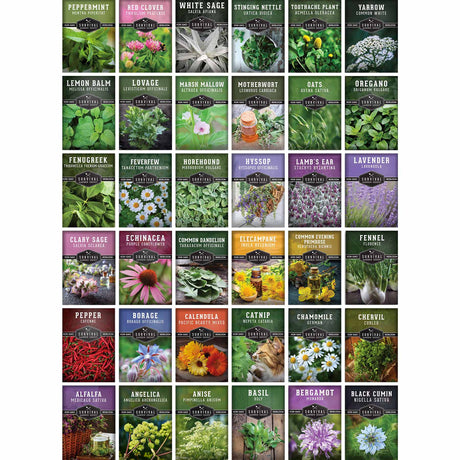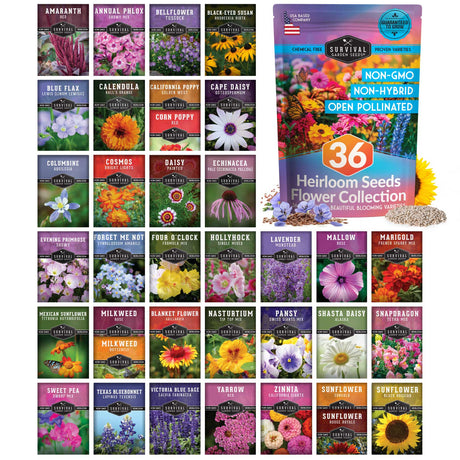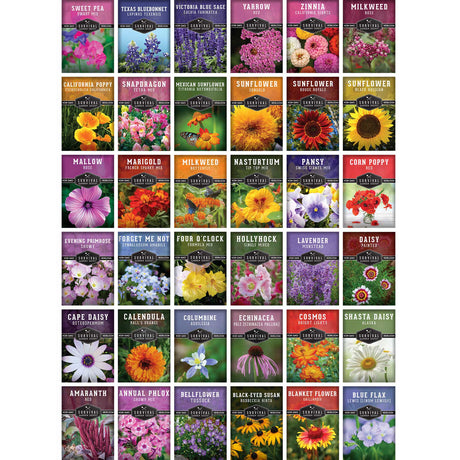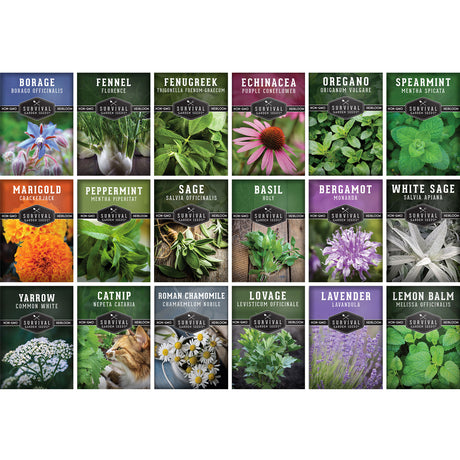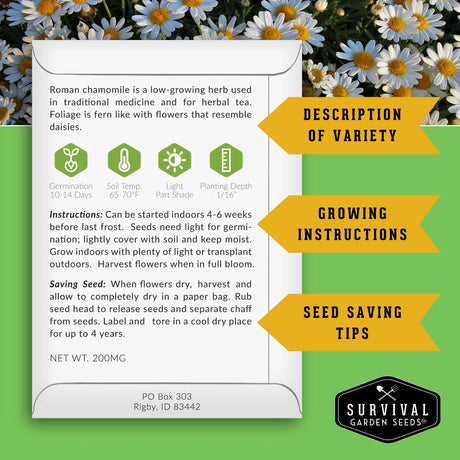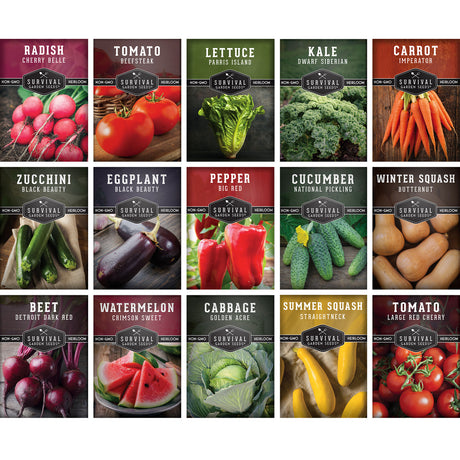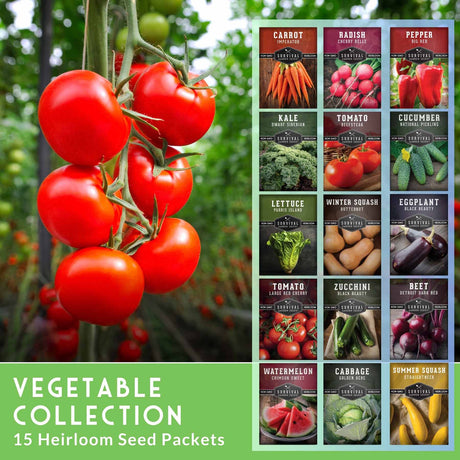When we began researching to create our Ultimate Medicinal Herb seed collection, we wanted to choose herbs and flowers that could serve as a broad natural pharmacy. We knew that some of the plants we might include could be aggressive spreaders or may even be considered invasive; however, their natural medicinal properties were so valuable that we felt they needed to be in the collection.
Many herbs like mint, and flowers like borage, are popular with gardeners. However, if not kept under control, these plants can spread rapidly and even take over the garden. You can take some basic steps to keep these plants under control and still reap the benefits.
Plants spread in two primary ways; through roots or runners and by seeds. If you know the method by which a species propagates, you can take measures to control the spread.
Varieties That Spread By Roots or Runners
For varieties that spread underground or with runners above ground, one of the easiest ways to control the spread is to grow them in containers, so that their roots are confined. If you do decide to grow them in the ground, then you should do regular maintenance to their growth by pulling up and removing plants that are beginning to spread beyond the boundaries you have set for them. Make sure to pull the whole plant and thoroughly remove the roots and any above-ground runners to keep the plants contained.
Here are some of the varieties that we offer that spread either underground or with runners over the soil:
- All mints - Peppermint, spearmint, catnip, lemon balm
- Comfrey
- Mugwort
- Stinging Nettle* (also ouchy to remove)
- Wormwood
- Yarrow*
Varieties That Spread By Self-Seeding
Plants that spread by seed can be kept under control by removing blooms before they have the chance to go to seed. A good layer of mulch can help prevent seeds from taking hold and some maintenance removing seedlings as they sprout will help keep these varieties under control.
Here are some of the varieties we offer that propagate by self-seeding:
- Amaranth
- Borage
- Burdock
- Buckwheat
- Dandelion (common)
- Evening Primrose (common)*
- Mullein
- Poppy (all)
- Sunflowers
- St. John’s Wort
Plants That Reproduce by Both Methods
These varieties may require you to employ multiple tactics mentioned above to keep them contained.
- Alpine strawberry* (unlikely to escape the garden but may take it over)
- Bergamot* (mostly in moist, rich soils, otherwise well-behaved)
- Clover (mostly Dutch white, Crimson less so)
- German chamomile
- Milkweed
- Spotted Bee Balm / Dotted Horsemint
- Showy evening primrose*
You do not have to miss out on the nutrition and health benefits of herbs and flowers that are aggressive spreaders. It just takes some vigilance and extra maintenance to have a medicinal garden that will help you and your family.
*North American native, technically not “invasive” but definitely aggressive

